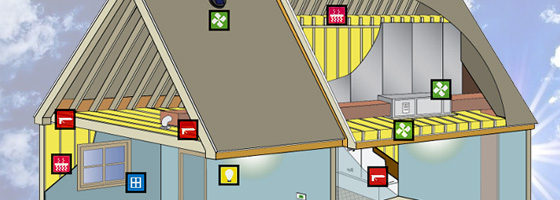Sustainability | Wednesday, April 16 | 7-9pm | Decatur City Hall
While the bulk of the Unified Development Ordinance (UDO) project is cleaning up and better organizing our existing codes, it also presents opportunity to dig down into certain areas that have been identified by the community for further study. On Wednesday, April 16, that digging will lead us to focus on issues related to sustainability: high performance buildings, outdoor lighting standards, animals, and parking.
The session, which runs 7-9pm, will explore the various green performance issues on the table and provide an overview of exactly what “menu of options” is available for consideration. As a participant, you’ll then have opportunity to evaluate each according to either do not regulate, require, or encourage, share your feedback on what rules or regulations seem most appropriate (or not), and which ideas you think would work best.
Here’s what we’ll hit:
High Performance Buildings
High performance building is the practice of creating structures and using processes that are environmentally responsible and resource-efficient throughout a building’s life-cycle — from design, construction, operation, and maintenance, to renovation and deconstruction. Such buildings reduce energy costs, improve indoor air quality, and provide greater, more consistent comfort. We’ll detail high performance building practices that could be incorporated into Decatur’s ordinance, along with their potential long-term costs and benefits.
Some of these most common performance issues are nicely summarized in this cool interactive overview from Southface.
Outdoor Lighting Standards
Decatur currently lacks regulations to reduce light pollution, despite increasing scientific research on the negative health and environmental impacts of excessive lighting at night. Potential changes to the ordinance include regulations about the types and placement of fixtures to control the unnecessary spread of light.
Animals
Chickens have become quite popular in Decatur, contributing to food, fun, gardening and education. Is everything working okay or does the number of chickens on any one lot need to be restricted? And what about potbellied pigs and pygmy goats? Should they be explicitly allowed or prohibited? Because, currently, the code is unclear either way.
Unbundled Parking
Today, parking is bought indirectly through the lease or purchase price of a property, which — beyond the environmental impacts of excessive parking — works against our affordable housing goals because it forces buyers and tenants to purchase parking, even if they have no car (or have fewer cars). Unbundling treats parking as separate from housing and allows tenants to save money by only buying what they need. People are still free to purchase what they require but those who need or choose to live without a car are no longer penalized.
That’s the rundown. If you’ve got ideas or concerns about sustainability and the environmental performance of our regulations, this is your opportunity to drill down. Please make time to join us.

